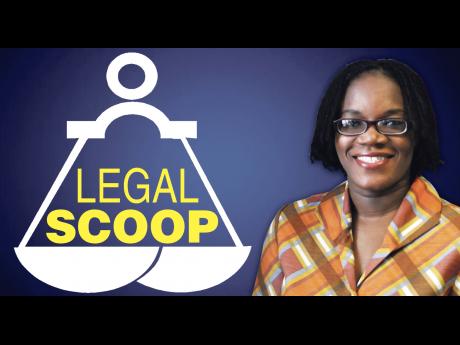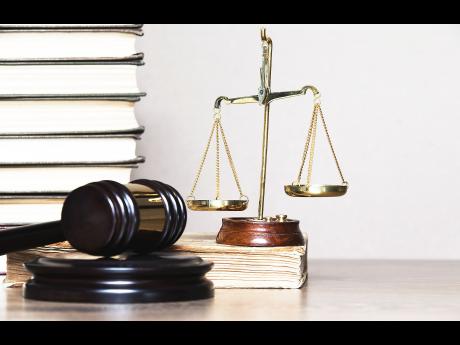Legal Scoop | Guardians, be aware!
A rather interestingly written judgment was recently handed down by the Court of Appeal in the case of 'B' and 'C'.
The judgment concerned the refusal of an application, filed by B and C in the Supreme Court, for guardianship of A, their granddaughter.
(To protect the identity of the child in the case, the names and unique details of the parties were not published in the judgment).
BACKGROUND
B and C had applied to the Supreme Court for guardianship of their granddaughter whom they had raised from she was one year old.
With the child turning three years old, they now desired to formally have her under their charge, to enable them to be able to 'call the shots' concerning her education, health and overseas travel.
It is not at all uncommon for persons to resort to the courts for orders for guardianship. I know several friends/acquaintances who have applied for similar orders from the Family Court - rather uneventfully, I dare say.
In this case, however, B and C opted or had no option but to approach the Supreme Court for the order of guardianship in respect of their granddaughter. They had their hopes dashed, however, when they learned that the judge formed the view that she did not have the jurisdiction to hear the application, since both biological parents of A were alive (although they had consented to the application) and the application was not being made by either of them.
In the Court of Appeal it fell to His Lordship, the Honourable Mr Justice Brooks, and their Ladyships, the Honourable Mrs Justice Almarie Sinclair-Hayne and Miss Justice Paulette Williams, to determine whether or not the Supreme Court was indeed powerless to rule in such cases.
RULING
Having canvassed the relevant authorities, the judges of the Court of Appeal, with the support of the well-presented research and submissions of counsel, Kerry Gaye Rushton and Debbian Livingstone-Edwards, concluded that the Supreme Court did have an inherent jurisdiction to appoint and remove guardians.
Further, it was permissible for the court, even during the lifetime of the biological parents, to award guardianship of a child to a person who was not a biological parent of that child, although it was only in extreme circumstances that the court would exercise that discretion. What is crucial, in such cases, is for the court to act in the best interests of the child.
CHILD AS WARD OF THE COURT
The truly startling moment in the judgment, however, came under this heading - Child as Ward of the Court. After a methodical and thorough exploration of the authorities, the judges of the Court of Appeal formed the view that prior to 1949, in both England and in Jamaica, the mere filing of the application for guardianship in the Chancery/High Court automatically made the child a ward of the court.
In 1949, however, the situation changed. The English Parliament sought to prevent the uncertainty of children being unintentionally made wards of court. That parliament, therefore, passed the Law Reform (Miscellaneous Provisions) Act 1949, which expressly stated that no infant was to be made a ward of the court except by virtue of an order to that effect made by the court. Jamaica, however, did not pass any similar legislation and as such, there was no restriction placed on the Supreme Court of Jamaica, as was placed on the English courts, by the 1949 legislation.
In the words of His Lordship, Brooks JA: ".... the filing of an application for a grant of an order for guardianship, whether it be by claim form or fixed date claim form, in this jurisdiction, will result in the child being made a ward of court."
Brooks JA also noted that the guardian, upon appointment as such, became an officer of the court, for the purposes set out in the appointment. In the words of Chris Martin, this is a BIG DEAL! Very few persons who approach the Supreme Court for an order of guardianship would likely expect that in so doing they would not only be making themselves officers of the court but, worse yet, also making the very minor that they are seeking guardianship of a ward of the Supreme Court.
In the judgment, Brooks JA sought to explain the onerous implication of the status of 'wardship' by reference to the case of re N (Infants) at page 530, where Stamp J said:
"... the effect of the infant becoming a ward of court was that he or she could not be taken out of the jurisdiction without the leave of the court and could not marry without the leave of the court; and I have no doubt whatsoever, that many infants were married and taken out of the jurisdiction of the court without their parents being aware that a contempt of court was being committed ...."
In addition to restrictions cited in re N (Infants), Justice Brooks JA further noted the following additional implication of 'wardship': "... the court is also obliged, where the child has property, to ensure that the circumstances of the child and the plans for the child's future must be carefully set out and monitored. Those obligations must not be undertaken lightly or blindly."
CONCLUSION
In B and C's case, the matter was ultimately remitted to the Supreme Court for reconsideration. However, it remains a major concern that the Supreme Court will automatically become the "parent" of a minor, and said minor, the "court's ward", because of the filing of an application for guardianship for said minor.
I shudder to think of the expense, inconvenience and frustration I would be put through, if every time I wanted to travel with my five-year-old (until he turned 18), I first had to seek the consent of the Supreme Court... brrrrrrrr......
LESSONS TO BE LEARNT
First, opt for the Family Court over the Supreme Court for your applications for guardianship, so long as possible. The Family Court may refuse to hear your application and remit it to the Supreme Court on the basis that it does not have the necessary jurisdiction. However, turn over all stones with the Family Court before going to the Supreme Court.
Second, it is important that Jamaica, like England, also pass legislation, similar to that of England's in 1949, which made it no longer possible for a child to become inadvertently a ward of the Supreme Court with all the attendant hardships of that status.
I am indebted to the Court of Appeal for publishing this very important judgment on its websites and for the industry of the counsel involved.
- Shena Stubbs is an attorney-at-law and legal commentator. Send feedback to: Email: shena.stubbs@gleanerjm.com; Twitter:@shenastubbs


